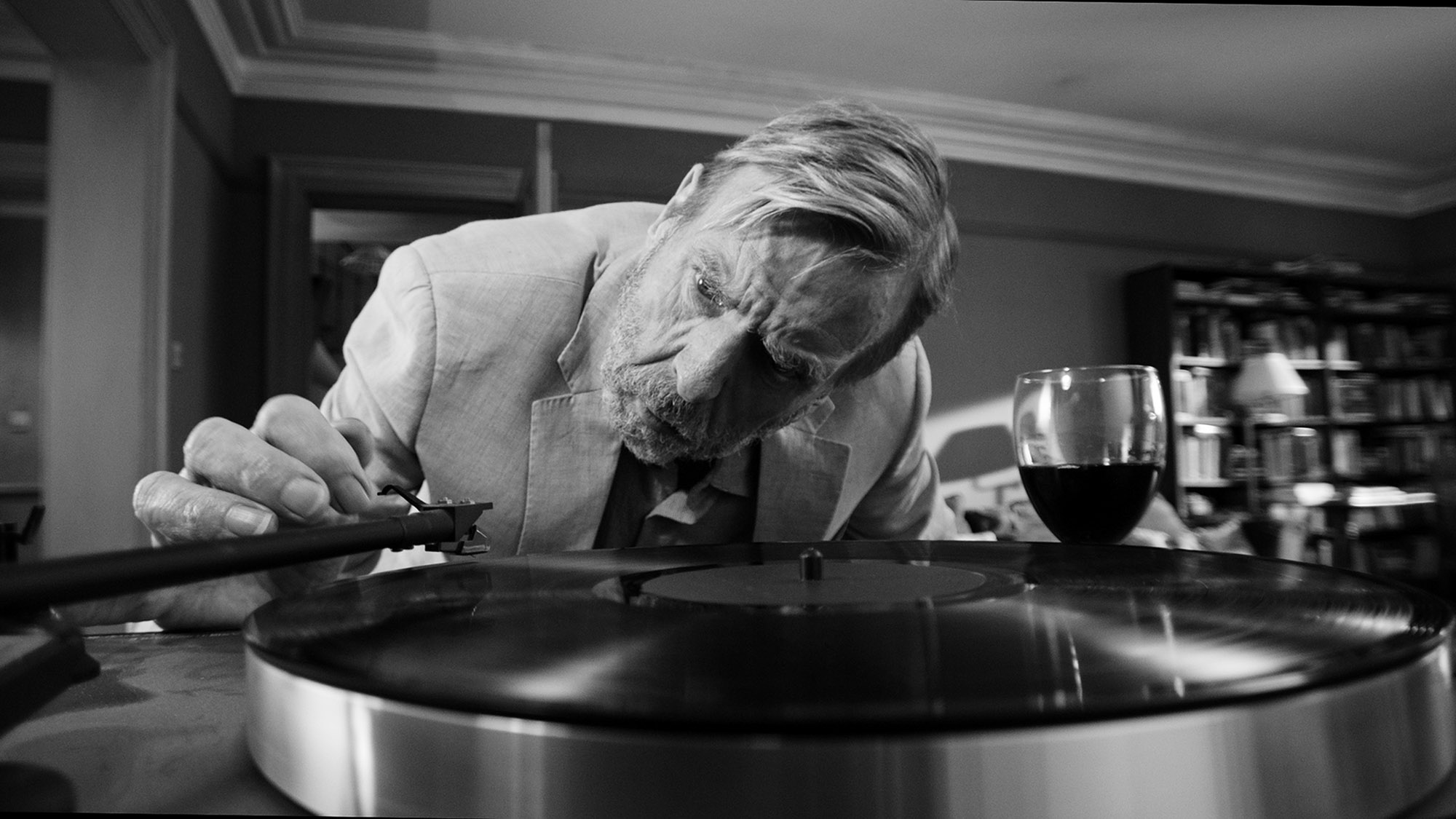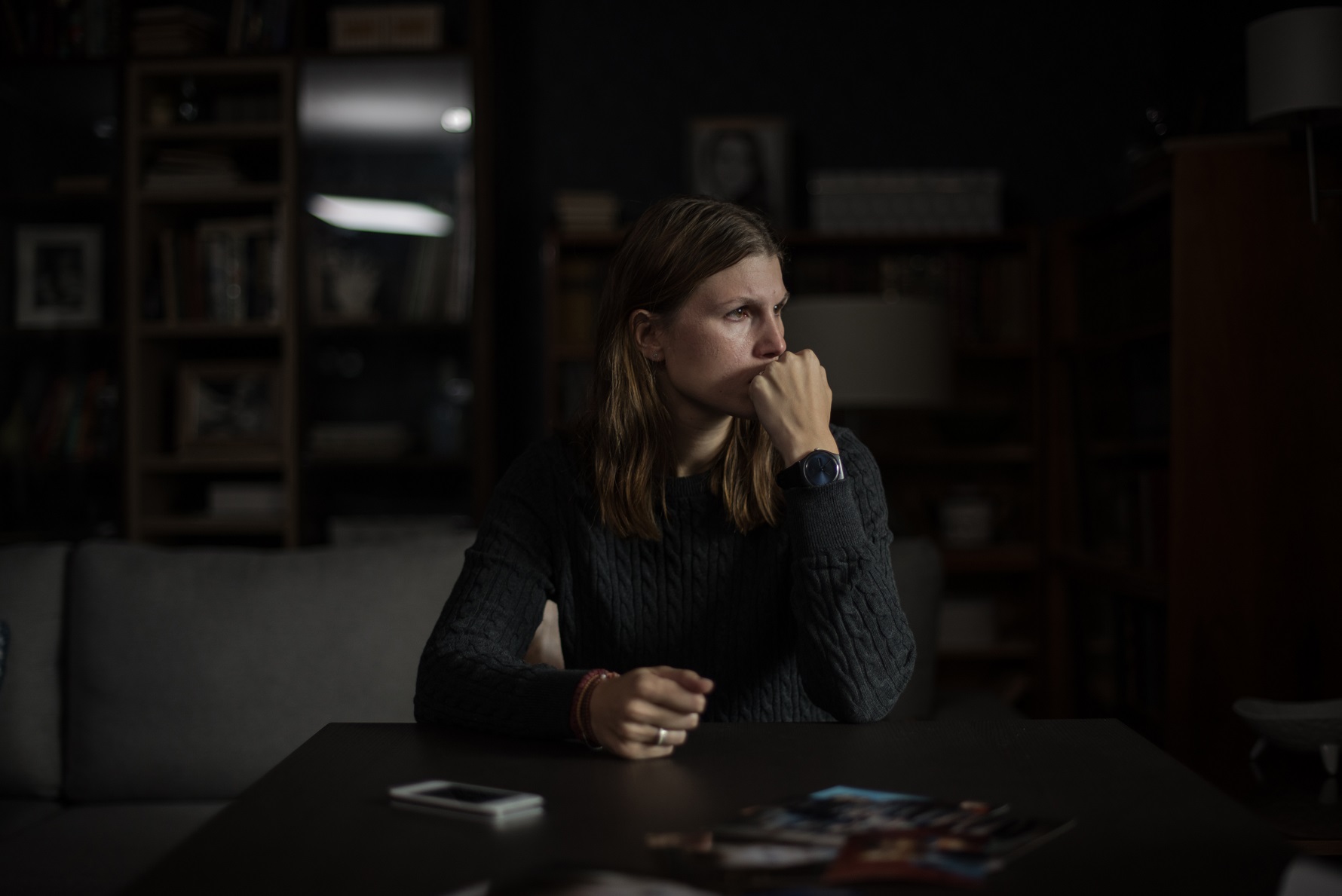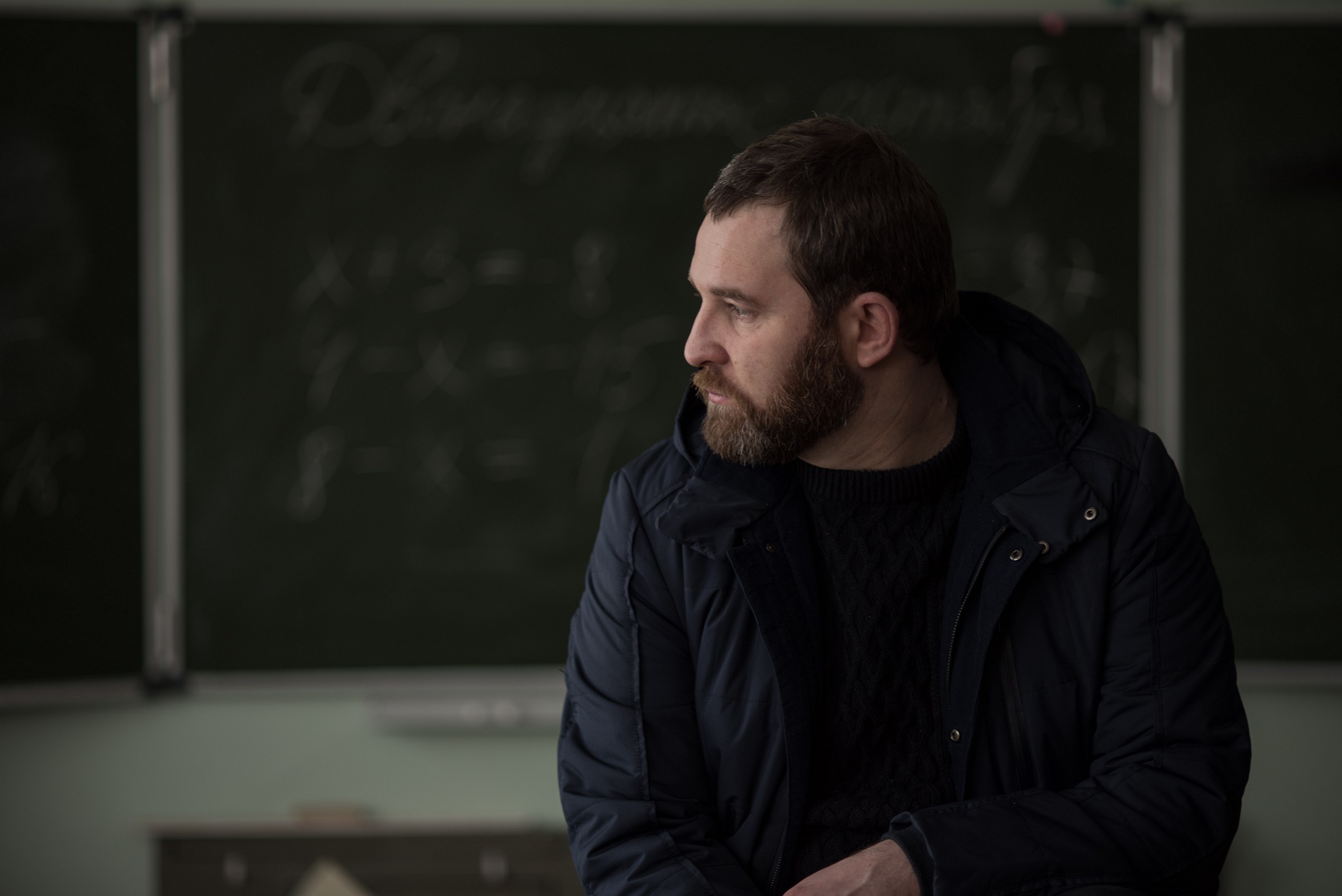This account of the aftermath of a sexual assault is handled with a clear-headed restraint and attention to detail that’s refreshing in the feverish post-Weinstein climate.

As Mom and Dad opens, after a comically shocking preface, the Ryan family are presented as a typical all-American middle-class family – albeit one that, strangely enough, can afford a daily maid who cooks their breakfast.

Country darkness falls quickly when Alice (Ruth Wilson) goes back to the farm. She stops before entering to gratefully absorb the Yorkshire countryside’s sunny beauty.

Take one of the strongest casts in British cinema and put them in a confined space; it was always going to be fun. Sally Potter’s The Party sets its sights on the duplicitous liberal elite, where venality hides behind paper-thin morals.
Janet (Kristen Scott Thomas) is hosting a get-together in celebration of her promotion to Shadow Health Secretary. Her husband Bill (Timothy Spall) is strangely quiet, barely acknowledging the arrival of their guests: the brilliantly sour April (Patricia Clarkson), her new-age life coach partner Gottfried (Bruno Ganz), feminist academic Martha (Cherry Jones), and her pregnant wife Jinny (Emily Mortimer). Once coked-up banker Tom (Cillian Murphy) joins proceedings, the pleasantries fall away as Bill reveals his big secret.
The exposition-heavy dialogue creaks through the opening 10 minutes, with every character explaining each other’s jobs and relationships as if being tested. It’s unsubtle, but it puts the pieces in place, allowing the film to swiftly move into anarchy. Every character is vain and hypocritical, desperately battling their own impulses to appear tolerable. When secrets start spilling over, fragile factions form in a pressure cooker environment, allegiances quickly changing with each reveal. Once in full flow, it’s a pure joy to watch; the cast have a riot, bouncing around the rooms to an eclectic soundtrack provided by Bill’s record player. There are moments of true comic gold, from The Thick of It-style implications of the Shadow Health Secretary’s husband going private for a terminal diagnosis, to the daft panic when searching for the right music to revive a dying man. Disappointingly, the ending peters out with a whimper, unable to find a satisfying conclusion to the madness. The final reveal attempts one more rug pull, but it feels cheap in comparison to the excellence preceding it.
Once in full flow, it’s a pure joy to watch; the cast have a riot, bouncing around the rooms to an eclectic soundtrack provided by Bill’s record player. There are moments of true comic gold, from The Thick of It-style implications of the Shadow Health Secretary’s husband going private for a terminal diagnosis, to the daft panic when searching for the right music to revive a dying man. Disappointingly, the ending peters out with a whimper, unable to find a satisfying conclusion to the madness. The final reveal attempts one more rug pull, but it feels cheap in comparison to the excellence preceding it.
It’s easy to imagine The Party starting life as a stage play, with its single setting and elements of farce, but it is a visual treat on the screen. The black and white presentation gives events a surreal grandeur, turning a middle-class suburban home into a monochromatic stage. Close ups of frantic faces (in particular, king of the crazed looks Cillian Murphy) build a claustrophobic atmosphere, highlighting every twitch as an amplified tell.
The house itself was a purpose-built set, as revealed in the special features on this release. After scouting various locations, production designer Carlos Conti and director Potter combined their favourite elements to create the ideal layout on a soundstage. The documentary on its construction is surprisingly fascinating, showing the lengths gone to make the rooms appear convincingly lived in. It emphasises the role that the house plays, perfectly designed to appear simultaneously spacious and suffocating on film.
Also included is a huge collection of interviews from the entire cast, along with Sally Potter and the film’s producers. It confirms that the script’s wit and depth was a major draw for the cast, who can demand hefty fees on more commercial vehicles. It’s a shame that the presentation of the interviews is so unimaginative, nothing more than soundbites presented with minimum effort. Still, it’s more than most British indies offer on home release, and worth it for that hour of perfect madness.
Overleaf: watch the trailer for The Party

Tonya Harding and the kneecapping of Nancy Kerrigan – what a story it was, back in 1994. Even if you knew nothing about figure skating, you followed the tale of Tonya, the red-neck, white-trash Olympic hopeful from Oregon, her more elegant rival Nancy and the clumsy plot, hatched by Tonya’s estranged husband and other bozos, and perhaps Tonya herself, to ruin Kerrigan’s chances in the Winter Olympics.

Greta Gerwig, in her hugely acclaimed, semi-autobiographical directing debut (a Golden Globe for best director, five Academy Award nominations) opens Lady Bird with a Joan Didion quote: “Anyone who talks about California hedonism has never spent a Christmas in Sacramento.”

Black Panther arrives with all the critics displaying superhero-sized goodwill for its very existence. It’s a big budget mainstream Marvel movie that not only features a nearly all-black cast, but it also has an African-American writer director (Ryan Coogler) and co-screenwriter (Joe Robert Cole).

Guillermo del Toro has laid down markers as a wizard of the fantastical with such previous works as Pan’s Labyrinth and Crimson Peak (though we’ll skate nimbly around Pacific Rim), and now he has brought it all back home with The Shape of Water, as its 13 Academy Award nominations might suggest.

After the anger, the emptiness… Russian director Andrey Zvyagintsev’s Loveless is his fifth film, and harks back to the world of complicated, somehow unelucidated family relationships that characterised his debut, The Return, the work that brought Zvyagintsev immediate acclaim back in 2003. His previous film, the tempestuous Leviathan from four years ago, was defined by a degree of social involvement that was new in his filmmaking, and engaged with contemporary Russia through the prism of politics. Its story of a lone individual’s clash with the corrupt society that surrounded him could not but provoke strong emotion.
Loveless sets out to do something different. It’s a film of wintry emotional withdrawal – a perfect pairing of season and subject – about the absence of almost any natural human core in the world it depicts. It’s as critical of its society as its predecessor was, but on a more oblique level, and arguably bleaker for that remove. There’s something of a loss in translation, too: the Russian title Nelyubov means, literally, “not-love” – almost “anti-love”, closer even to “hate”, but not quite that extreme. “Loveless” lacks the necessary muscle, as well as that particular Slavic antonymic essence that can assert absence as something far more visceral than simply a lack of presence. (The film’s French-language title, Faute d’amour, perhaps comes closer to the sense of the original.)
Zvyagintsev makes us view these proceedings almost as if we are observing animals
It is not a film defined by over-complexity. There’s a luminous clarity to the world that Zvyagintsev and his co-writer Oleg Negin (the director’s collaborator since his second film, 2007’s The Banishment) have created, which hints at the simplicity of parable. And “clarity” is as good a word as any to describe the particularly composed, poised cinematography of Mikhail Krichman, who has worked with Zvyagintsev from the very beginning. The sense that a style has evolved between them is strong.
The spare script drops us in medias res into the painful throes of divorce. Any love between Zhenya (Maryana Spivak, pictured below) and Boris (Alexey Rozin, lower picture) has eviscerated itself long ago; the final, symbolic dissolution of their marriage awaits the sale of their flat, which is one of those typical Russian living spaces where middle-class comfort within belies a coldly imposing, anonymous exterior. Desperate to leave their old lives behind, both have new partners, and the only remaining impediment to their assumed (separate) future happiness – one to which they have clearly not paid overmuch attention – is their 12-year-old son, Alyosha (Matvey Novikov, main picture). The only thing they still spar about is what to do with him, each wishing to offload responsibility onto the other.
 Our sense of the boy’s alienation is conveyed practically without words, but speaks so powerfully: Zvyagintsev builds towards an unforgettable scene that defines the extreme of his agony, all the more shocking for its being set against the banality of his parents’ ongoing lives. We see them in their separate professional environments – Zhenya runs a beauty salon, Boris is a middle-management salaryman – as well as with their new partners. Boris fears that his divorce will be unacceptable to his ultra-religious employer, which is almost more of a worry than that he and his heavily pregnant girlfriend, the younger Masha (Marina Vasilyeva), are going be living with her mother. Zhenya has found new security with the older Anton (Andris Keishs), drawn as much by the attractive way of life that the prosperous single businessman offers her as by any attraction of the heart.
Our sense of the boy’s alienation is conveyed practically without words, but speaks so powerfully: Zvyagintsev builds towards an unforgettable scene that defines the extreme of his agony, all the more shocking for its being set against the banality of his parents’ ongoing lives. We see them in their separate professional environments – Zhenya runs a beauty salon, Boris is a middle-management salaryman – as well as with their new partners. Boris fears that his divorce will be unacceptable to his ultra-religious employer, which is almost more of a worry than that he and his heavily pregnant girlfriend, the younger Masha (Marina Vasilyeva), are going be living with her mother. Zhenya has found new security with the older Anton (Andris Keishs), drawn as much by the attractive way of life that the prosperous single businessman offers her as by any attraction of the heart.
The director is engaging again with the differences of social class (which in Russia is defined as much as anything else by economic status) that were at the centre of his 2011 film Elena: it’s clearest in early scenes in which the couples are eating, one in an exaggeratedly posh restaurant, the other bringing their supermarket purchases back to the kitchen table. Then we watch them as they make love. The way that Zvyagintsev presents all this is characteristic: somehow he makes us view these proceedings almost as if we are observing animals, subjects engaged first with appetite, then recreation (sex-ercise?). The alienation is double, not only in the world of the director’s characters, but in his perspective, too.
This 'lovelessness', we come to understand, extends far beyond the present divorce
When Alyosha disappears – he’s reported missing from school before his distracted parents even notice his absence – the couple is forced to reengage, while the plot takes on an element of ongoing urgency and some rather welcome procedural tension. The police won’t take action immediately, recommending instead a volunteer search-and-rescue group (it's based on real-life Moscow precedents) to take over the investigation; it initiates increasingly large-scale searches of the area (the anonymous suburb in which the family lives borders on woodland). But there’s surely something ambiguous in how we perceive this citizen group action: it’s all impressively efficient and coordinated, especially when set against the lethargic reluctance of the police – yet do we wonder, in the wider context of Russian history, about the ramifications of such collective energy?
If Zvyagintsev leaves us to make up our minds on that one, he pulls no punches in the night scene in which the couple drive together to check whether their son has run away to his grandmother. Natalya Potapova plays Zhenya’s mother as a harridan haunted by history – her son-in-law describes her as “Stalin in a skirt” – and we begin to appreciate how her daughter has become who she is. The reception the old woman gives them is matched for acidity only by the bile they throw at one another along the way.
It’s a revelation that proves as terrifying as anything brought in the film’s resolution, which develops incrementally towards a conclusion that has all the inexorability of the territory (it comes with some exterior locations that match even Tarkovsky’s Stalker for wondrous dereliction). The dimensions of terror widen, becoming somehow ontological: this “lovelessness”, we come to understand, extends far beyond the present divorce, right “back to the beginning”. Is it fanciful to think of those moments of birth (rebirth) in Russian history of the last century, to go back to 1991, the collapse of the certainties and seeming securities of the Soviet world, even to 1917? It’s for the viewer to decide.
Of course, there’s another context behind Loveless too, the cinematic one that Zvyagintsev has alluded to not least in his acclaim of Ingmar Bergman, whose Scenes from a Marriage is, not surprisingly, a film he has referenced directly. But what is most potent in the way that the Russian director depicts his homeland is the sense that no alternative outcome could finally be possible, so rotten is this world in which the concept of empathy seems to have been entirely lost. Zvyagintsev may have altered his register – where Leviathan was painted with a broad brush, Loveless is a scalpel dissection – but his message remains constant.
Overleaf: watch the trailer for Loveless

Fakery is promised in the opening image of The Mercy. A smiling beauty water-skis over sunny seas, only for the camera to pull away and reveal she is part of a maritime expo in a vast exhibition hall. One of the other exhibitors is an inventor called Donald Crowhurst (Colin Firth), who enlists his beaming sons to demonstrate his Navicator, a simple tool to guide sailors on the high seas. Optimism is laced with a tincture of despair.
